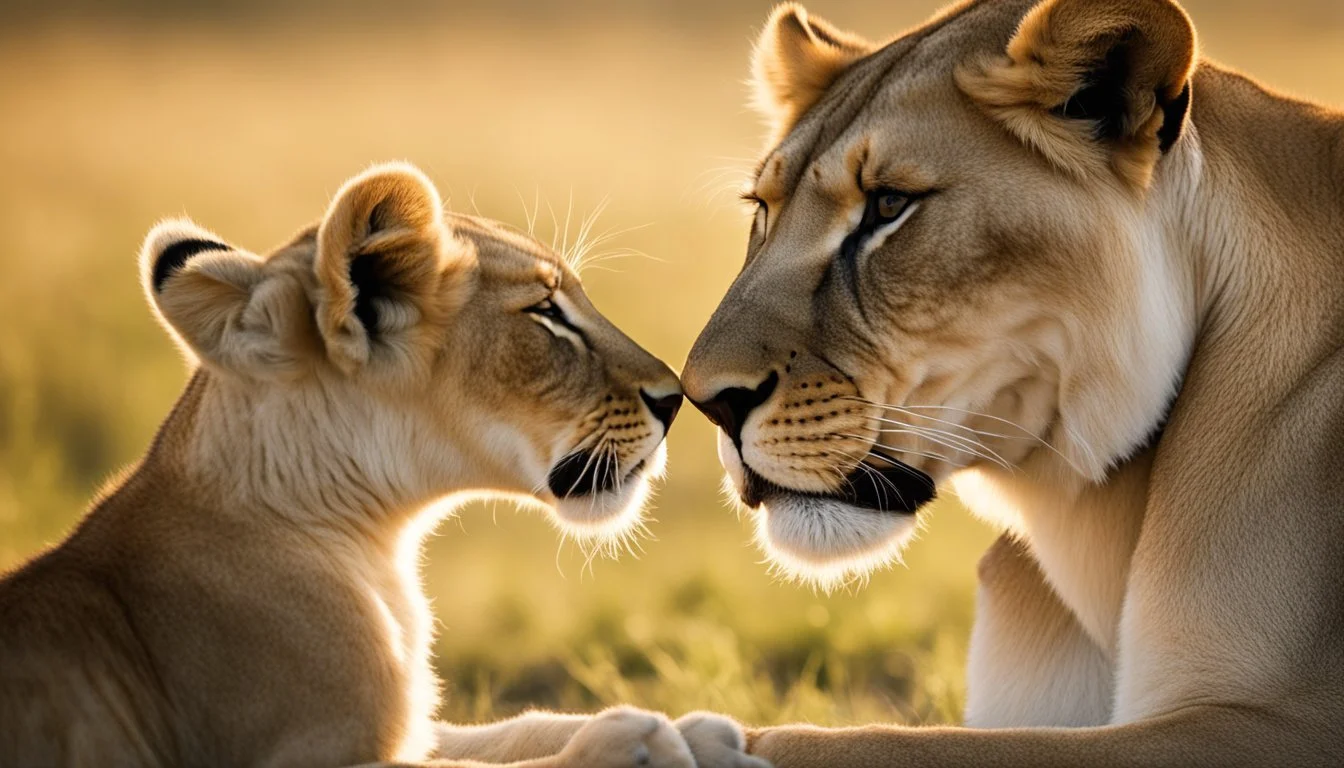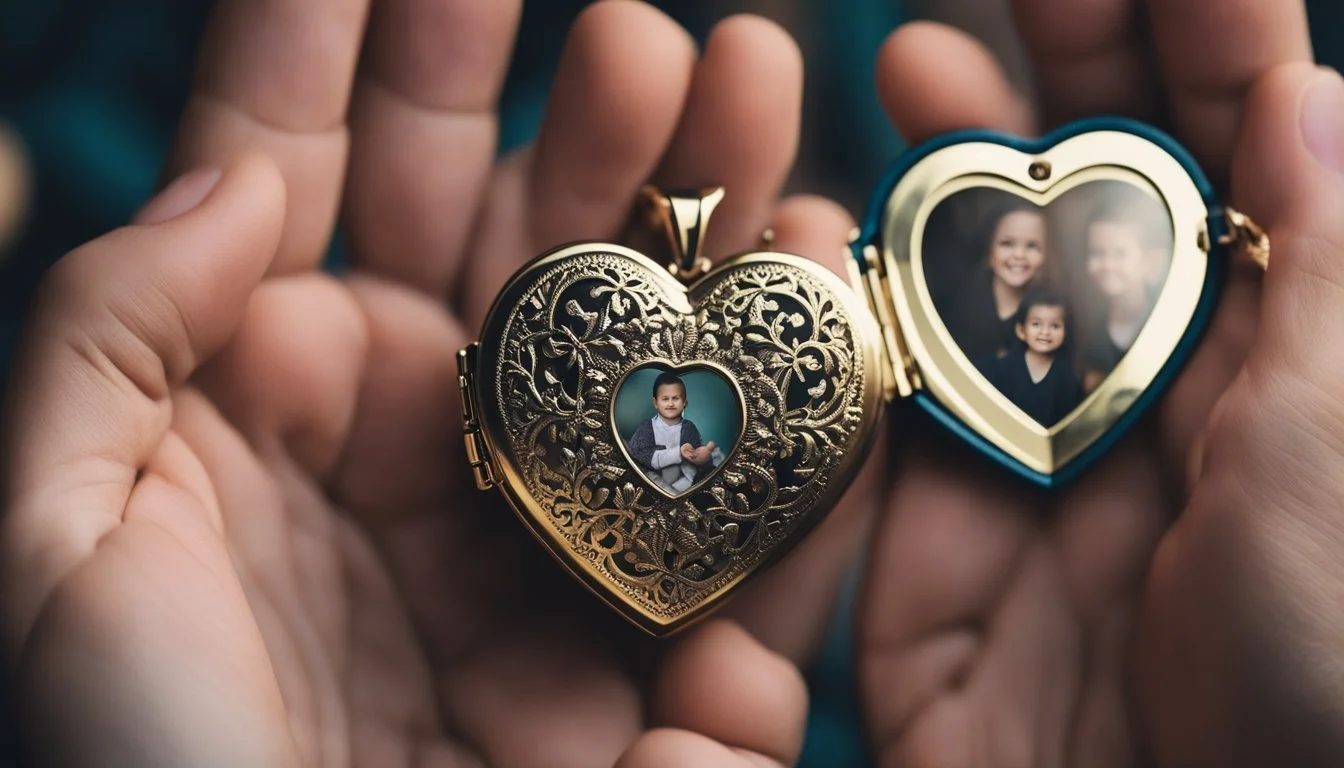5 Documentaries That Highlight the Journey of Adoption and Love
Emotional Stories of Family-Building
Adoption is a profound journey that touches the lives of countless families worldwide. Documentaries offer a unique window into this transformative experience, capturing the complex emotions, challenges, and joys that come with building a family through adoption.
These films shed light on the diverse perspectives of adoptees, birth parents, and adoptive families, providing valuable insights for those considering adoption or seeking to understand its impact. By exploring real-life stories, viewers gain a deeper appreciation for the power of love and the resilience of the human spirit in overcoming obstacles to create lasting family bonds.
1) "Three Identical Strangers" by Tim Wardle (2018)
"Three Identical Strangers" tells the extraordinary true story of Robert Shafran, Eddy Galland, and David Kellman. These identical triplets were separated at birth and reunited by chance at age 19.
The documentary explores their joyful reunion and initial media frenzy. It then delves into the darker implications of their separation, uncovering a secret adoption experiment.
Tim Wardle's film skillfully weaves together archival footage and present-day interviews. It raises thought-provoking questions about nature versus nurture and the ethics of scientific research.
The triplets' story takes unexpected turns as they grapple with their newfound relationships and shared history. The film reveals how their lives diverged despite their genetic similarities.
"Three Identical Strangers" received critical acclaim for its compelling narrative and emotional depth. It won a Special Jury Award at the Sundance Film Festival.
2) "Closure" by Bryan Tucker (2013)
"Closure" follows Angela Tucker, an African American woman adopted by white parents, as she searches for her birth family. The documentary captures Angela's emotional journey over two years.
Bryan Tucker, Angela's husband, directed the film. He documents key moments in Angela's search, from initial attempts to locate information to eventual reunions with biological relatives.
The film explores complex themes around transracial adoption, identity, and family bonds. It provides an intimate look at the challenges and rewards of connecting with one's birth family as an adult adoptee.
"Closure" offers a nuanced perspective on adoption, avoiding simplistic narratives. It highlights both joyful reunions and difficult confrontations with the past.
The documentary received praise for its honest portrayal of the adoption experience. It resonated with many adoptees and adoptive families who saw their own experiences reflected on screen.
"Closure" is available on streaming platforms like Netflix and Hulu. It continues to be used as an educational resource for adoption professionals and families.
More information on "Closure" (IMDB)
3) "Wo Ai Ni (I Love You) Mommy" by Stephanie Wang-Breal (2010)
"Wo Ai Ni (I Love You) Mommy" offers a poignant glimpse into the world of international adoption. The documentary follows Fang Sui Yong, an 8-year-old Chinese orphan, as she is adopted by the Sadowsky family from Long Island.
The film captures Sui Yong's journey from China to the United States, highlighting the challenges of adapting to a new culture, language, and family. It showcases the emotional complexities faced by both the child and adoptive parents during this transition.
Wang-Breal's intimate approach allows viewers to witness Sui Yong's struggles and triumphs firsthand. The documentary explores themes of identity, belonging, and the formation of new familial bonds across cultural divides.
"Wo Ai Ni Mommy" provides valuable insights into the experiences of the 70,000 Chinese children adopted by American families. It raises important questions about cultural preservation and the impact of international adoption on young children.
Through its honest portrayal of Sui Yong's story, the film contributes to broader discussions about adoption practices and cultural assimilation.
More information on "Wo Ai Ni (I Love You) Mommy"
4) "Lion" directed by Garth Davis (2016)
"Lion" tells the remarkable true story of Saroo Brierley, an Indian boy who gets separated from his family and ends up adopted by an Australian couple. The film depicts Saroo's journey as he searches for his birth family 25 years later using Google Earth.
Garth Davis makes his feature directorial debut, crafting a powerful and emotionally resonant narrative. The film avoids melodrama, instead focusing on the raw human experiences at its core.
Young actor Sunny Pawar delivers a standout performance as the young Saroo, bringing depth and authenticity to the role. Nicole Kidman also shines as Sue Brierley, Saroo's adoptive mother, portraying her character's unwavering love and support.
"Lion" explores themes of identity, family, and the unbreakable bonds of love that transcend biological relationships. It highlights both the joys and challenges of international adoption.
The film received critical acclaim and numerous award nominations, resonating with audiences worldwide through its inspiring true story of perseverance and connection.
5) "Somewhere Between" by Linda Goldstein Knowlton (2011)
"Somewhere Between" explores the lives of four teenage girls adopted from China by American families. Director Linda Goldstein Knowlton crafts an intimate portrait of their experiences navigating identity and belonging.
The documentary follows these young women as they grapple with questions about their origins and place in the world. It offers a nuanced look at transracial adoption and the complexities of cultural identity.
Knowlton's personal connection to the subject matter shines through, as she made the film while in the process of adopting a daughter from China herself. This personal stake lends depth and authenticity to the project.
The film highlights the girls' journeys of self-discovery as they reconnect with their birth country and culture. It explores themes of family, heritage, and the search for self in a thoughtful and engaging manner.
"Somewhere Between" provides valuable insights into the adoption experience and the challenges faced by transracial adoptees. It offers a sensitive portrayal of young women forging their identities between two cultures.
Understanding Adoption Themes
Adoption documentaries explore complex themes that shape the experiences of adoptees, birth parents, and adoptive families. These films offer insights into the emotional and cultural aspects of adoption.
Cultural Perspectives on Adoption
Adoption documentaries often highlight diverse cultural viewpoints. Some films examine international adoptions, showcasing the challenges of bridging cultural gaps. Others focus on domestic adoptions within specific communities.
Films like "Finding Banni" explore cross-cultural adoptions, revealing the impact of cultural differences on family dynamics. These documentaries shed light on the importance of preserving an adoptee's heritage while integrating them into a new family environment.
Many films also address societal attitudes towards adoption in different cultures. They may explore how adoption is perceived in collectivist versus individualist societies, or how religious beliefs influence adoption practices.
Emotional Journeys in Adoption Stories
Adoption documentaries capture the range of emotions experienced by all parties involved. They often portray the joy and excitement of adoptive parents, as well as their anxieties and challenges.
These films frequently depict the complex feelings of adoptees, including curiosity about their origins, struggles with identity, and the process of bonding with adoptive families. Documentaries like "An Adoption Story" offer intimate glimpses into these emotional landscapes.
Birth parents' perspectives are also explored, revealing their decisions, grief, and hopes for their children's futures. Some documentaries follow reunions between adoptees and birth families, showcasing the intense emotions involved in these encounters.
Impact of Love in Adoption
Love plays a crucial role in shaping the adoption experience. It fosters deep connections and helps overcome challenges faced by adoptive families.
The Role of Unconditional Love
Unconditional love forms the foundation of successful adoptions. Adoptive parents embrace their children fully, regardless of background or circumstances.
This acceptance helps adopted children develop a strong sense of belonging and security. It allows them to overcome fears of abandonment or rejection that may stem from their early experiences.
Unconditional love also supports children in exploring their identities and origins. Parents who encourage open discussions about adoption demonstrate their commitment to their child's well-being.
Building Strong Familial Bonds
Adoptive families often develop uniquely strong bonds through shared experiences and challenges. These connections are built on trust, communication, and mutual support.
Many adoptees report feeling deeply loved and cherished by their adoptive families. This emotional security helps them thrive and form healthy relationships throughout life.
Adoptive parents frequently describe a profound sense of connection with their children. They invest time and energy in nurturing these relationships, often participating in adoption support groups or family therapy.
Siblings in adoptive families also play a vital role. They can provide additional support and understanding, creating a network of love and acceptance within the family unit.





